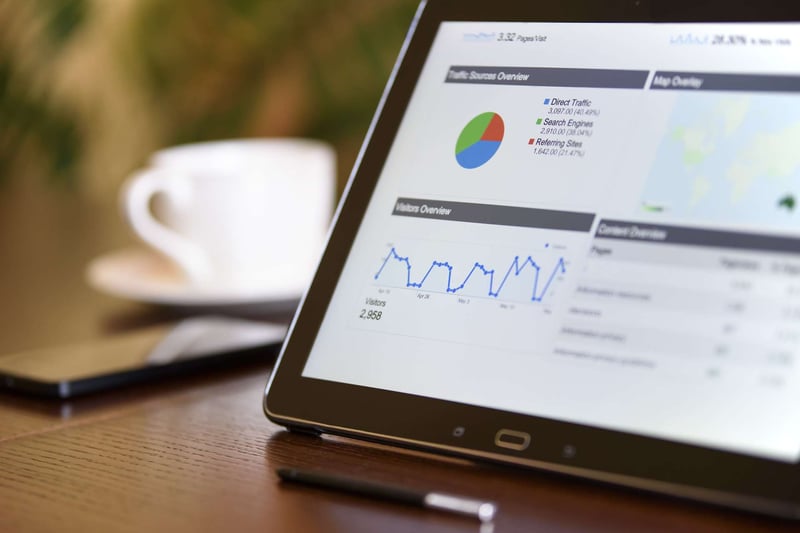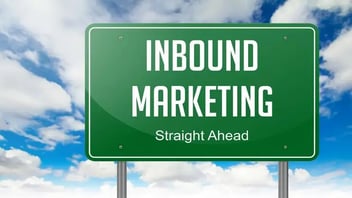Ce este marketingul digital? Nu există o modalitate mai bună de a începe să răspundeți la această întrebare decât cu o definiție care sună simplu, aceasta de la Hubspot:


"Marketingul digital cuprinde toate eforturile de marketing care utilizează un dispozitiv electronic sau internetul. Întreprinderile utilizează canalele digitale, cum ar fi motoarele de căutare, rețelele sociale, e-mailul și alte site-uri web pentru a intra în contact cu clienții actuali și potențiali."
Observați că am spus că sună simplu. Această definiție sună bine la prima vedere. Acum citiți-o din nou. Vedeți ce lipsește? Nu spune nimic în afară de faptul că marketingul digital se face digital, ceea ce încercam să definim de la bun început. Deci ne învârtim în cerc.
Să ne uităm la o definiție a termenului mai larg "marketing":
"Acțiunea sau activitatea de promovare și vânzare a produselor sau serviciilor, inclusiv cercetarea pieței și publicitatea".
Acum ajungem undeva. Așadar, marketingul digital utilizează tehnologia de comunicare digitală a secolului XXI pentru a transmite unui public mai larg mesajul dvs. de marketing cu privire la minunăția care este noul dvs. widget. Super. Stați puțin. Asta sună ca marketingul social media sau ca marketingul de conținut?
Cum se potrivește marketingul digital cu toate celelalte tipuri de marketing?
Nu vă înșelați; există o mulțime de suprapuneri și încrucișări de genuri. Tehnic vorbind, aceste alte forme de marketing sunt subseturi ale marketingului digital. O listă mai detaliată a acestor subseturi ar putea arăta cam așa:
-
Marketingul de conținut - Utilizarea conținutului de formă lungă pentru marketingul inbound în vederea angajării clienților potențiali și existenți deopotrivă.
-
Social media marketing - Utilizarea de conținut de formă scurtă și postări mixte, cum ar fi infografice și videoclipuri, pentru a intra în contact cu adepții.
-
Email marketing - Buletine informative și oferte speciale trimise unei liste de contacte existente.
-
Publicitate PPC-Pay-Per-Click - publicitatea utilizează anunțuri plătite, adesea pe paginile de rezultate ale motoarelor de căutare, pentru a atrage un public nou să facă clic pe site-ul dvs. web, pagina de destinație sau alt conținut.
-
Inbound marketing - un termen utilizat pentru marketingul de conținut, social și prin e-mail.
-
Publicitate nativă - un termen relativ nou pentru conținutul sponsorizat. Scrieți o postare pe blog în care prezentați noul dvs. widget, iar aceasta este postată pe site-ul altcuiva ca postare invitată.
-
Marketing outbound - Include tactici de marketing tradiționale precum apelurile la rece, e-mailurile la rece, publicitatea plătită, spoturile TV și anunțurile din ziare.
Așadar, nu este vorba atât de mult de faptul că sunt forme diferite de marketing, ci mai degrabă de faptul că acestea se adaugă pentru a forma un întreg mai cuprinzător care este marketingul digital. Bine, acum facem progrese reale. Următoarea întrebare pe care o puteți pune este:
Stai așa, sunt un specialist în marketing sau un specialist în marketing digital?
Sunteți responsabil de găsirea panoului publicitar potrivit pe care să vă plasați noua reclamă? Sau să trimiteți mailuri pe hârtie și să organizați un nou spot TV? Atunci sunteți un marketer.
Sau vă ocupați de orchestrarea campaniilor de conștientizare a mărcii prin intermediul rețelelor sociale? Și cine alcătuiește calendarul editorial pentru blog? Tu ești acela? Cum rămâne cu utilizarea strategică a remarketing-ului și a anunțurilor PPC? Dacă asta sună ca ziua ta, atunci ești un specialist în marketing digital.
Din nou, există o mulțime de suprapuneri, după cum ați văzut mai sus. Principalul factor de luat în considerare este dacă vă comercializați produsele online (în lumea digitală) sau în forme fizice (în lumea reală).
BINE. Am înțeles. Așadar, cum poate beneficia marketingul digital de compania MEA?
Ajungem în sfârșit la adevărata întrebare. Pentru că sunt șanse mari să faceți deja marketing digital. Este posibil să nu fi avut un nume pentru acesta, sau să nu fi realizat diferențele, sau chiar să nu fi realizat că ar trebui să vă pese de orice diferențe. Pentru a răspunde la această întrebare, permiteți-mi să vă pun o întrebare în schimb:
"Unde își petrece publicul dumneavoastră cea mai mare parte a timpului liber?"
Punem pariu că ați răspuns una dintre următoarele: pe Facebook, dând scroll pe Twitter sau, în general, "pe telefon". Deci, de fapt, v-ați răspuns la propria întrebare.
Dacă doriți ca mesajul mărcii dvs. să ajungă în fața celor mai mulți ochi posibili, trebuie să îl transmiteți prin intermediul platformelor pe care publicul țintă le utilizează deja. Deci, dacă acei ochi sunt implicați în social media, e-mail și derularea și glisarea pe telefoanele lor, bingo.
Și partea cea mai bună este că nu contează dacă sunteți B2B sau B2C, acest lucru este valabil. Deoarece obiectivul este conversia unui membru al audienței în client, procesul de utilizare a mediilor digitale pentru a conduce traficul către site-ul dvs. funcționează indiferent de specificul audienței. Poate că vă concentrați mai mult pe LinkedIn pentru B2B și pe Facebook pentru B2C, dar în rest, jocul este același.
Întrebare suplimentară: Ce se întâmplă dacă nu am buget pentru nimic din toate acestea?
Aveți.
Aceasta este una dintre frumusețile marketingului digital, există la fel de multe moduri de a face acest lucru ca și companii care participă sau puncte de vânzare pe care să comercializeze. Puteți avea un buget de marketing de 0 $ și totuși să utilizați foarte bine conturile de Facebook și Twitter ale companiei dvs. pentru a vă asigura că mesajul mărcii dvs. ajunge acolo și este văzut de persoanele potrivite. Sau puteți avea 1 000 000 de dolari pentru o campanie.
Oricum ar fi, brandul dvs. este văzut de persoanele pe care le vizați. Este o chestiune de scară. Compania care nu are nimic de cheltuit probabil că nu vizează milioane de persoane, astfel încât rezultatele să corespundă nevoilor.
Crearea de profiluri pe principalele rețele de socializare este gratuită. Crearea unui blog al companiei costă tariful orar al persoanei care îl creează, iar postarea pe acesta este gratuită. Bine, cineva va petrece ceva timp făcând studii de piață, scriind și editând postările etc. Dar costurile suplimentare sunt minime aici.
Așadar, faceți-vă timp pentru a crea niște conturi, faceți niște cercetări și stabiliți o strategie care să se potrivească dimensiunii și nevoilor companiei dumneavoastră, faceți niște ascultări sociale și începeți să comercializați acel widget. Cu o strategie digitală bine construită, puteți începe să vedeți rezultate destul de repede. Între timp, părțile care sunt mai pe termen lung în domeniul de aplicare al marketingului digital (marketingul de conținut, mă uit la tine) sunt ocupate să construiască abur, pregătindu-se să te uimească cu volumul de conversii de care sunt capabile. Marketingul digital este, probabil, strategia de marketing nr. 1 pentru secolul XXI, așa că vă încurajăm pe toți să vă alăturați, dacă nu sunteți deja.
A venit timpul.











Lasă un comentariu